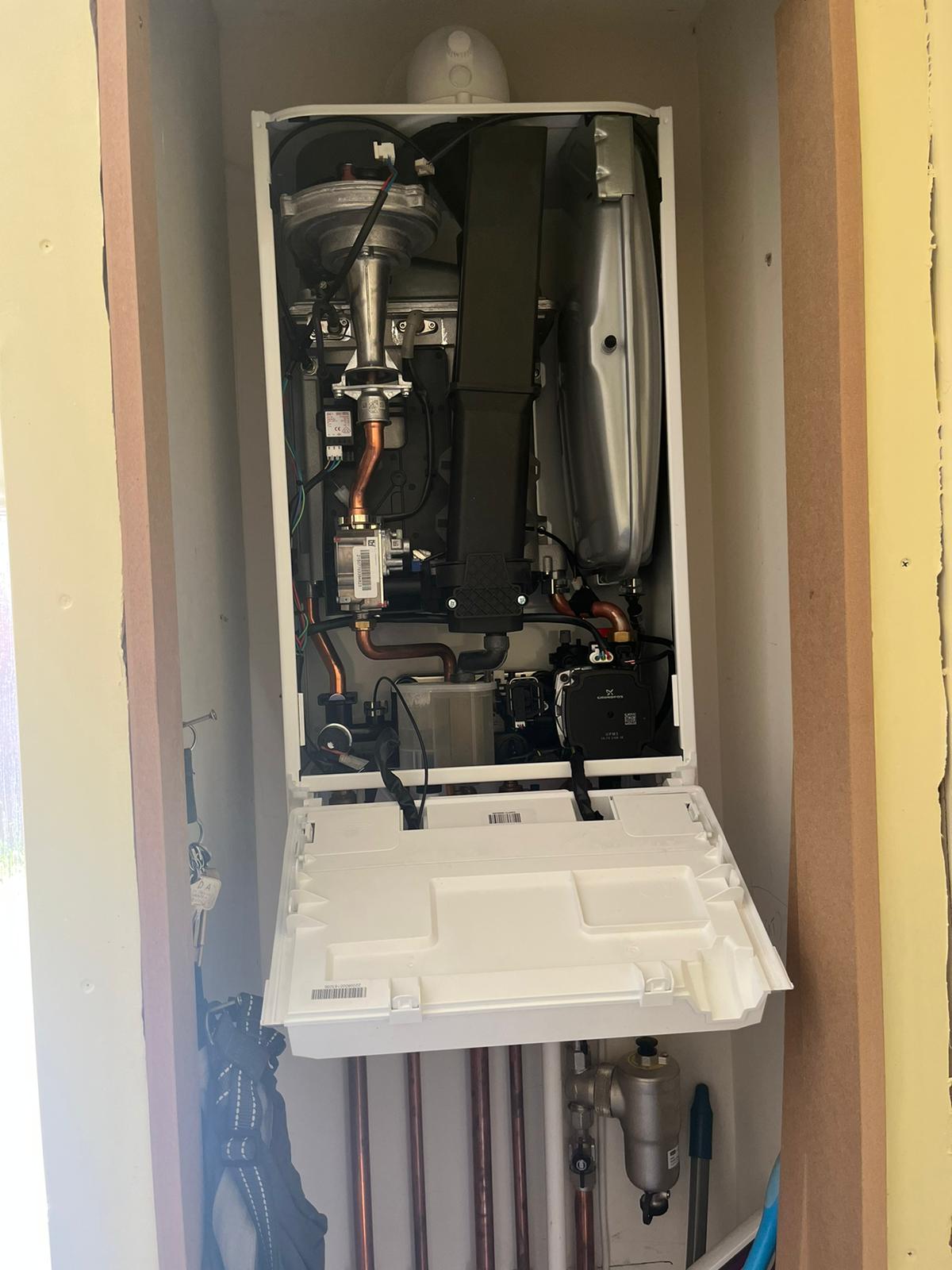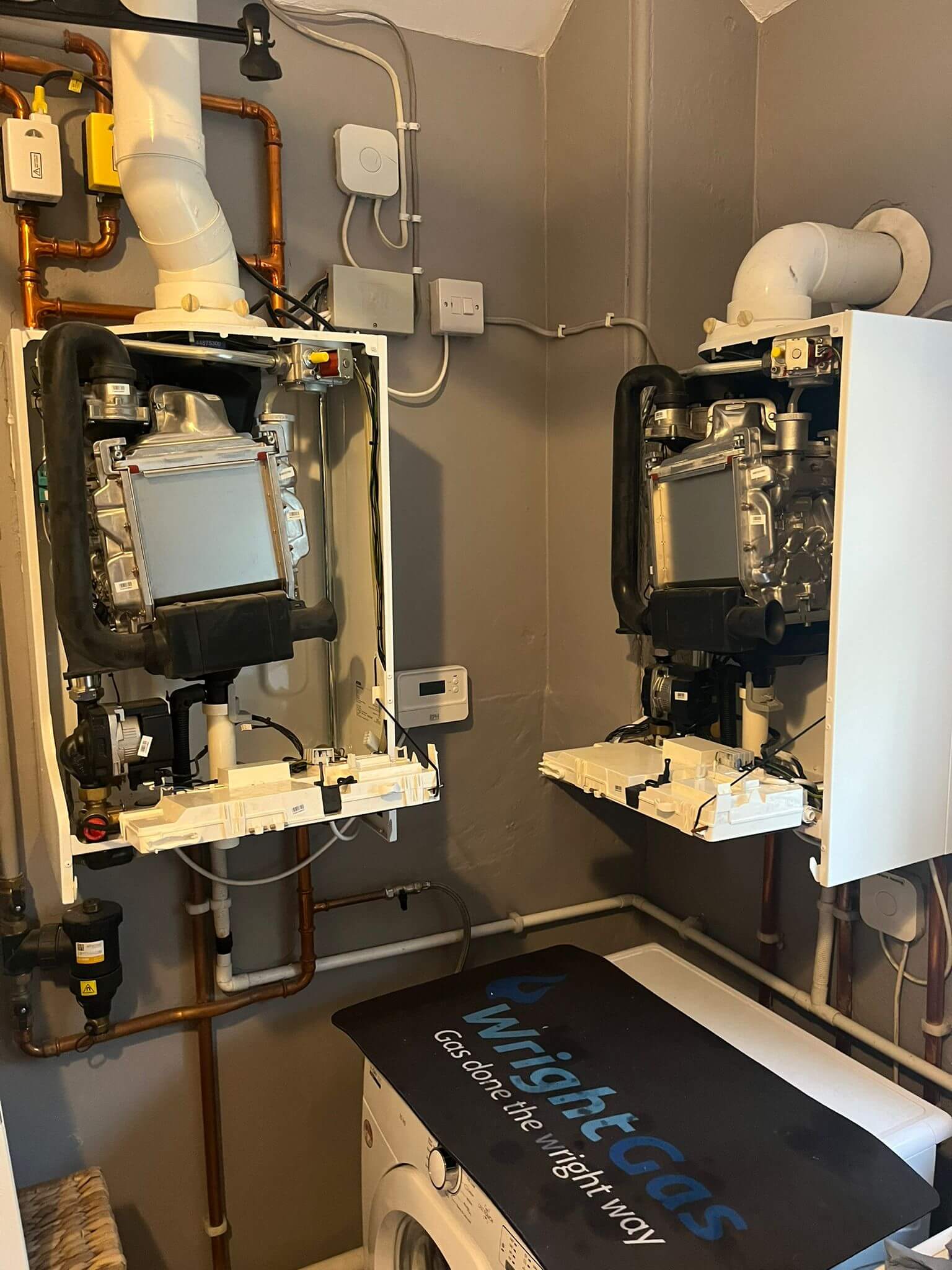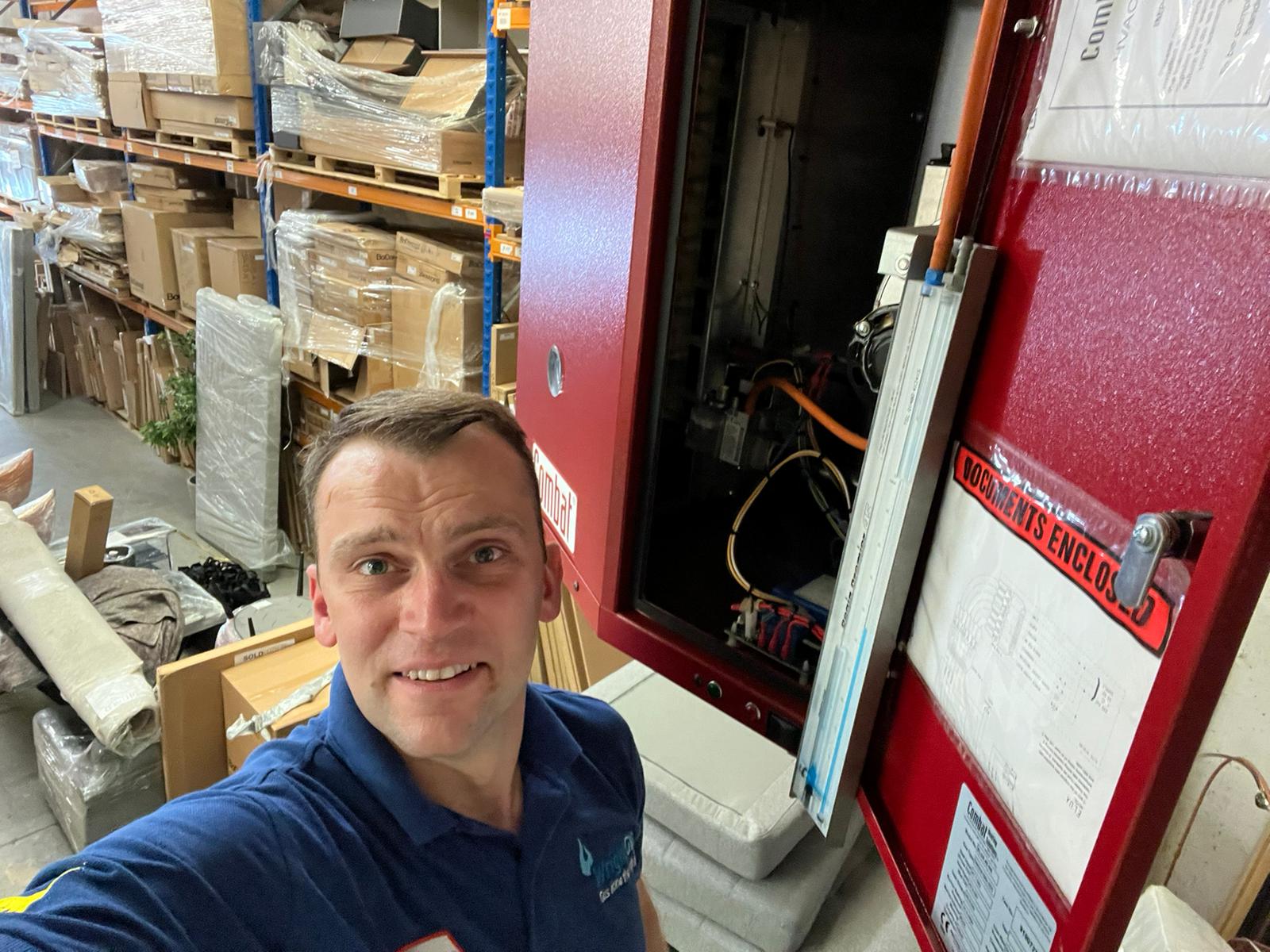A reliable, efficient boiler is at the heart of a home’s heating system. It provides warmth during the winter and delivers hot water for daily use. Whether you’re replacing an old unit, installing a new boiler, or upgrading your heating system, one of the most common concerns is: How long will it take to install my new boiler?
The time it takes to install a boiler can vary depending on several factors, such as the type of boiler, whether you’re relocating it, or changing the type of fuel used. In simpler installations, the process can take just a few hours, but for more complex scenarios, it could take multiple days.
This guide explores all aspects of boiler installation, from straightforward swaps to full central heating system upgrades, so you know exactly what to expect when working with Wright Gas.

Factors That Influence the Time It Takes to Install a New Boiler
There are several key factors that determine the time required to install a new boiler. Understanding these elements can give you a clearer idea of what to expect during the boiler installation process.
Boiler Type:
The first major factor is the type of boiler you choose to install. Each type requires different amounts of time for installation:
- Combi boilers, which provide both heating and hot water in one compact unit, are typically the quickest to install.
- System boilers, which require a separate hot water cylinder, take a little longer to set up because they involve more complex pipework.
- Conventional boilers, which also need a separate hot water tank and cylinder, require the most time, as they involve installing a full central heating system, including gas and water pipes.
Boiler Installation Location:
Another important factor is whether the boiler is installed in the same location as the old one or moved to a new location within the property. If you’re relocating your boiler to a loft, basement, or garage, additional pipework and adjustments to the flue system are necessary, which extends the time required for installation.
System Complexity:
If you’re simply replacing an existing boiler with a new model of the same type, the process will be quick and efficient. However, if you’re switching to a different type of boiler or upgrading the entire system (including new radiators, thermostats, or a hot water cylinder), the boiler installation will be more time-consuming.
Pipework and Gas Connection:
The condition of the existing pipework also plays a significant role in installation time. Older pipes may need to be replaced or adjusted to meet modern safety standards. Additionally, if your home does not have the necessary gas connections, installing a new gas meter or modifying the gas supply can take longer.
Additional Work:
Additional installations, such as integrating smart thermostats, upgrading the flue system, or flushing the system to remove debris, can add extra time to the process. These steps may take several additional hours to complete, but can help improve system efficiency and safety.
How Long Does a Straightforward Boiler Swap Take?
A like-for-like boiler replacement is the simplest type of boiler installation and takes the least amount of time. This is typically the quickest and least disruptive option for homeowners.
During this installation:
- A new boiler of the same type and size replaces the old one.
- No new pipework or adjustments are needed if the boiler is staying in the same location.
- The old boiler is simply removed, and the new one is installed.
Estimated time: 4–6 hours
This is the ideal scenario if you are upgrading to a more energy-efficient model but don’t need to make significant changes to the layout of your home’s heating system.
How Long Does It Take to Relocate a Boiler?
Relocating your boiler to a new position, such as moving it to the loft, garage, or basement, requires additional modifications. These include:
- Re-routing gas and water pipes
- Adjusting the flue system to meet building regulations
- Ensuring the new location is safe and accessible
Relocating a boiler is more involved than a straightforward swap, but it can free up space in other parts of the house and might even improve the efficiency of the heating system.
Estimated time: 1–2 days
While this process can take longer, it may be a good investment if it improves both the functionality and aesthetic of your home.

Installing a Brand-New Boiler (No Previous Boiler in Place)
If your property is newly built or you are upgrading from an electric system (such as electric heaters) to a gas-powered boiler, the installation process becomes more comprehensive. In these cases, the following is required:
- Full pipework installation for water, gas, and waste
- Setting up a gas connection (if not already in place)
- Installing the flue system and ensuring it meets current regulations
Installing a brand-new boiler in a property without existing heating or plumbing systems typically takes several days due to the extensive nature of the installation.
Estimated time: 2–3 days
This is often the case in newly built homes or properties that have never had central heating before.
How Long Does It Take to Change the Type of Boiler?
Switching from one type of boiler to another, such as from a conventional or system boiler to a combi boiler, requires additional work, including:
- Removing existing water tanks or cylinders
- Modifying the pipework to accommodate the new boiler type
- Adjusting the flue and possibly installing new components
This process is not as straightforward as a simple like-for-like replacement but offers improved energy efficiency and the ability to save space by eliminating water storage tanks.
Estimated time: 1–2 days
Despite the extra time, switching boiler types can enhance system performance and make your home more energy-efficient.
How Long Does It Take to Change Both the Type and Location of Your Boiler?
If you’re making both changes, switching to a different boiler type and moving it to a new location, the installation process becomes more complex. This situation involves:
- Re-routing gas, water, and waste pipes
- Installing a new flue system
- Changing the electrical setup to accommodate the new boiler
Since both type and location are changing, this type of boiler installation will take several days and involves a significant amount of modification work.
Estimated time: 2–3 days
This scenario is ideal if you are upgrading your system and changing your layout to maximise space or improve energy efficiency.
How Long Does It Take to Change Fuel Type?
Some homeowners may opt to change the fuel type for their boiler, such as moving from oil to gas or from gas to electric. This is a more involved process because it requires:
- New gas or electric connections
- Upgrading or adjusting your pipework and radiators
- Ensuring the new fuel source is compatible with your existing heating system
Estimated time: 3–5 days
Switching fuel types takes the longest because it requires extensive modifications, but it can provide a more eco-friendly and cost-effective heating solution in the long term.
Additional Factors That Affect Installation Time
- Several external factors can affect the total time it takes to install your new boiler:
- Flushing the system to remove debris can add an extra 3–6 hours
- Upgrading gas pipes may extend the installation by half a day
- Smart thermostat integration adds 1–2 hours
- Complications during installation, such as discovering faulty pipes or needing to adjust the gas supply, may extend installation time
These factors can be difficult to predict in advance, but working with an experienced Gas Safe engineer like Wright Gas ensures that any potential issues are quickly resolved.

How Much Downtime Can You Expect?
While your new boiler is being installed, you may be without:
- Hot water for several hours to a full day
- Central heating for a short period, especially if extensive work is required
To reduce inconvenience, it’s a good idea to plan ahead—consider using alternative heating sources (such as portable heaters) during the boiler installation process.
What Happens After Installation?
- After your new boiler is installed, there are a few key steps to ensure everything is working smoothly:
- Checking gas pressure and testing the system for leaks
- Registering the new boiler for warranty
- Ensuring that the boiler is running at optimal efficiency
- Final setup takes an additional 1–2 hours, after which your new system will be ready for use.
Wrapping Up…
Installing a new boiler is a significant investment in the comfort and efficiency of your home. Whether you’re simply swapping out an old model, relocating the boiler to a new space, or opting for a complete upgrade, understanding the factors that influence installation time can help you plan accordingly. From straightforward installations to more complex setups, Wright Gas offers expert advice, ensuring the process is as seamless and efficient as possible.
If you’re ready to experience a reliable, energy-efficient heating system, it’s crucial to work with Gas Safe registered engineers to ensure safety, compliance, and long-term performance. Our team at Wright Gas is here to guide you every step of the way, providing expert boiler installation services tailored to your needs.
Contact us today and let’s get started on installing your new boiler. Don’t wait until the cold weather hits—get your home prepared for comfort and efficiency today!





